Diastolic Blood Pressure
How to submit an article:
- Registered users can submit any published journal article that has a unique DOI (Digital Object Identifier) name or link to Research Hub.
- For example, you can paste the full DOI link:
https://doi.org/10.1109/5.771073or just the DOI name:10.1109/5.771073into the field above and click submit. - The person who is first to submit a valid article to Research Hub will forever be credited for it, and every article submission earns you +6 Research Points.
Related Topics
Published research studies are articles that present the findings of original research that has undergone a peer-review process and has been made publicly available in scholarly journals, books or other media.
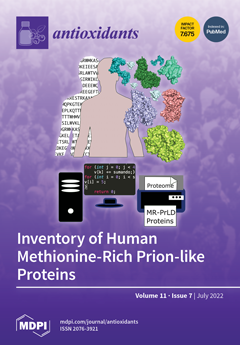
Antioxidant Properties and Beneficial Cardiovascular Effects of a Natural Extract of Pomegranate in Healthy Volunteers: A Randomized Preliminary Single-Blind Controlled Study
2022 Oct 28 Antioxidants Al-Dujaili EAS, Casey C, Stockton A
Randomised Controlled Trial Clinical Study Cardiovascular Disease Pomegranate High Blood PressurePomegranate extract consumption improves antioxidant levels, reduces oxidative stress and cardiovascular risk factors including blood pressure and body fat, and increases lean body mass.
Beneficial Effects of Sulforaphane-Yielding Broccoli Sprout on Cardiometabolic Health: A Systematic Review and Meta-analysis
2022 Oct 18 Jundishapur Journal of Natural Pharmaceutical Products Houshialsadat Z, Mirmiran P, Zare-Javid A, Bahadoran Z, Houghton C
Meta-Analysis Systematic Review Sulforaphane High Blood Pressure BroccoliConsumption of broccoli sprouts significantly lowers blood pressure, potentially due to properties of sulforaphane.

The effect of pomegranate extract on anthropometric indices, serum lipids, glycemic indicators, and blood pressure in patients with nonalcoholic fatty liver disease: A randomized double‐blind clinical trial
2021 Sep 08 Phytotherapy Research Goodarzi R, Jafarirad S, Mohammadtaghvaei N, Dastoorpoor M, Alavinejad P
Randomised Controlled Trial Obesity Pomegranate HDL-C Blood Sugar Triglyceride Insulin Resistance Cholesterol Diastolic Blood PressurePomegranate extract supplement shows potential in improving glycemic indicators, serum lipids, anthropometrics, and blood pressure in patients with nonalcoholic fatty liver disease.
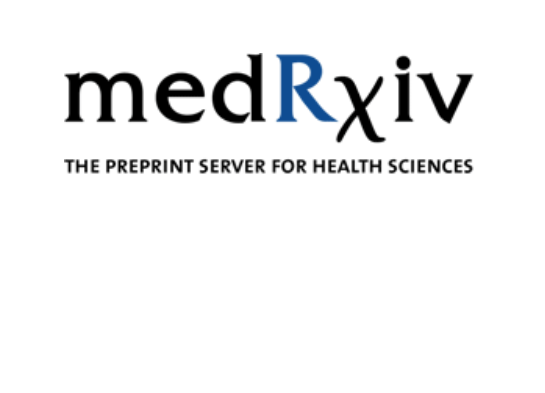
Dose-dependent effect of nuts on blood pressure: a systematic review and meta-analysis of randomized controlled trials
2021 May 23 medRxiv Ahmad Jayedi, Tauseef Ahmad Khan, Amin Mirrafiei, Bahareh Jabbarzadeh, Yasaman Hosseini, Sheida Motlagh, et al.
Systematic Review Meta-AnalysisThe available evidence provides a good indication that nut consumption can result in a small improvement in blood pressure in adults.
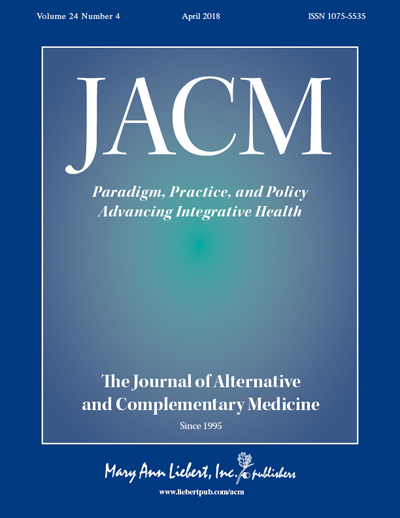
Acupuncture for Regulating Blood Pressure of Stroke Patients: A Systematic Review and Meta-Analysis
2020 Dec 9 The Journal of Alternative and Complementary Medicine Hong, S., Ahn, L., Kwon, J., et al.
Acupuncture may be a suitable treatment option for regulating blood pressure after stroke compared with conventional medication, for both systolic and diastolic blood pressure, without the report of any adverse events. However, the trials are not free from bias. Further reviews would yield positive results if well-designed trials are conducted.
Systematic Review Meta-Analysis Stroke Rehabilitation High Blood PressureResearch insights are moderated by the Research Hub team and offer an at-a-glance overview of interesting research findings.

2022 Antioxidants
Pomegranate extract consumption improves antioxidant levels, reduces oxidative stress and cardiovascular risk factors including blood pressure and body fat, and increases lean body mass.
Randomised Controlled Trial Cardiovascular Disease High Blood Pressure Pomegranate
Antioxidant Properties and Beneficial Cardiovascular Effects of a Natural Extract of Pomegranate in Healthy Volunteers: A Randomized Preliminary Single-Blind Controlled Study
Al-Dujaili EAS, Casey C, Stockton A
2022 Jundishapur Journal of Natural Pharmaceutical Products
Consumption of broccoli sprouts significantly lowers blood pressure, potentially due to properties of sulforaphane.
Meta-Analysis Broccoli High Blood Pressure Sulforaphane
Beneficial Effects of Sulforaphane-Yielding Broccoli Sprout on Cardiometabolic Health: A Systematic Review and Meta-analysis
Houshialsadat Z, Mirmiran P, Zare-Javid A, Bahadoran Z, Houghton C

2021 Phytotherapy Research
Pomegranate extract supplement shows potential in improving glycemic indicators, serum lipids, anthropometrics, and blood pressure in patients with nonalcoholic fatty liver disease.
Randomised Controlled Trial Blood Sugar Cholesterol HDL-C Insulin Resistance Obesity
The effect of pomegranate extract on anthropometric indices, serum lipids, glycemic indicators, and blood pressure in patients with nonalcoholic fatty liver disease: A randomized double‐blind clinical trial
Goodarzi R, Jafarirad S, Mohammadtaghvaei N, Dastoorpoor M, Alavinejad P

2021 medRxiv
The available evidence provides a good indication that nut consumption can result in a small improvement in blood pressure in adults.
Systematic Review
Dose-dependent effect of nuts on blood pressure: a systematic review and meta-analysis of randomized controlled trials
Ahmad Jayedi, Tauseef Ahmad Khan, Amin Mirrafiei, Bahareh Jabbarzadeh, Yasaman Hosseini, Sheida Motlagh, et al.

2020 Complementary Therapies in Medicine
Almond intake significantly decreased diastolic blood pressure, and inconsistently, almonds decreased systolic blood pressure.
Systematic Review Almond High Blood Pressure
The effect of almond intake on blood pressure: A systematic review and meta-analysis of randomized controlled trials
Eslampour E, Asbaghi O, Hadi A, Abedi S, Ghaedi E, Lazaridi AV, et al.
Review Articles
Review articles summarise and critically evaluate the current state of research on a specific topic or field by synthesising multiple primary research studies.
Beneficial Effects of Sulforaphane-Yielding Broccoli Sprout on Cardiometabolic Health: A Systematic Review and Meta-analysis
2022 Oct 18 Jundishapur Journal of Natural Pharmaceutical Products Houshialsadat Z, Mirmiran P, Zare-Javid A, Bahadoran Z, Houghton C
Meta-Analysis Systematic Review Sulforaphane High Blood Pressure BroccoliConsumption of broccoli sprouts significantly lowers blood pressure, potentially due to properties of sulforaphane.

Dose-dependent effect of nuts on blood pressure: a systematic review and meta-analysis of randomized controlled trials
2021 May 23 medRxiv Ahmad Jayedi, Tauseef Ahmad Khan, Amin Mirrafiei, Bahareh Jabbarzadeh, Yasaman Hosseini, Sheida Motlagh, et al.
Systematic Review Meta-AnalysisThe available evidence provides a good indication that nut consumption can result in a small improvement in blood pressure in adults.

Acupuncture for Regulating Blood Pressure of Stroke Patients: A Systematic Review and Meta-Analysis
2020 Dec 9 The Journal of Alternative and Complementary Medicine Hong, S., Ahn, L., Kwon, J., et al.
Acupuncture may be a suitable treatment option for regulating blood pressure after stroke compared with conventional medication, for both systolic and diastolic blood pressure, without the report of any adverse events. However, the trials are not free from bias. Further reviews would yield positive results if well-designed trials are conducted.
Systematic Review Meta-Analysis Stroke Rehabilitation High Blood Pressure
The effect of almond intake on blood pressure: A systematic review and meta-analysis of randomized controlled trials
2020 May Complementary Therapies in Medicine Eslampour E, Asbaghi O, Hadi A, Abedi S, Ghaedi E, Lazaridi AV, et al.
Systematic Review Meta-Analysis High Blood Pressure Diastolic Blood Pressure AlmondAlmond intake significantly decreased diastolic blood pressure, and inconsistently, almonds decreased systolic blood pressure.

The effects of cashew nut intake on lipid profile and blood pressure: A systematic review and meta-analysis of randomized controlled trials
2020 May Complementary Therapies in Medicine Jalali M, Karamizadeh M, Ferns GA, Zare M, Moosavian SP, Akbarzadeh M
Cashew nut consumption has no significant effects on lipid profile and diastolic blood pressure, but it may reduce systolic blood pressure.
Systematic Review Meta-Analysis Cashew Systolic Blood PressureClinical Trials
Clinical trials are research studies that involve people and are conducted to evaluate the safety and efficacy of new treatments or interventions, such as drugs, medical devices, or behavioural therapies.

Antioxidant Properties and Beneficial Cardiovascular Effects of a Natural Extract of Pomegranate in Healthy Volunteers: A Randomized Preliminary Single-Blind Controlled Study
2022 Oct 28 Antioxidants Al-Dujaili EAS, Casey C, Stockton A
Randomised Controlled Trial Clinical Study Cardiovascular Disease Pomegranate High Blood PressurePomegranate extract consumption improves antioxidant levels, reduces oxidative stress and cardiovascular risk factors including blood pressure and body fat, and increases lean body mass.

The effect of pomegranate extract on anthropometric indices, serum lipids, glycemic indicators, and blood pressure in patients with nonalcoholic fatty liver disease: A randomized double‐blind clinical trial
2021 Sep 08 Phytotherapy Research Goodarzi R, Jafarirad S, Mohammadtaghvaei N, Dastoorpoor M, Alavinejad P
Randomised Controlled Trial Obesity Pomegranate HDL-C Blood Sugar Triglyceride Insulin Resistance Cholesterol Diastolic Blood PressurePomegranate extract supplement shows potential in improving glycemic indicators, serum lipids, anthropometrics, and blood pressure in patients with nonalcoholic fatty liver disease.
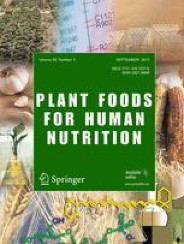
Effects of Pomegranate Juice on Cardiovascular Risk Factors in Patients with Metabolic Syndrome: a Double-Blinded, Randomized Crossover Controlled Trial
2017 Mar 16 Plant Foods for Human Nutrition Moazzen H, Alizadeh M
Randomised Controlled Trial Cardiovascular Risk Metabolic Syndrome PomegranatePomegranate juice intake can reduce systolic and diastolic blood pressure and inflammation markers, but may increase triglyceride and very low-density lipoprotein cholesterol levels.
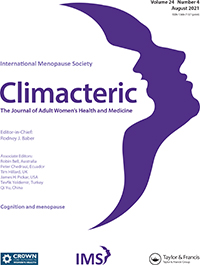
Improvement in HDL cholesterol in postmenopausal women supplemented with pumpkin seed oil: pilot study
2011 May 05 Climacteric Gossell-Williams M, Hyde C, Hunter T, Simms-Stewart D, Fletcher H, McGrowder D, et al.
Randomised Controlled Trial Postmenopausal Pumpkin Seed Oil HDL-C MenopausePumpkin seed oil supplementation may increase good cholesterol levels, lower diastolic blood pressure, and alleviate menopausal symptoms in postmenopausal women.
Study Protocols
Published study protocols are detailed plans that outline the objectives, methodology, statistical analyses, and organisation of a research study that have been made publicly available for others to review and use as a reference.
Presentation Slides

Randomised Controlled Trial
Pomegranate extract consumption improves antioxidant levels, reduces oxidative stress and cardiovascular risk factors including blood pressure and body fat, and increases lean body mass.
Al-Dujaili EAS, Casey C, Stockton A

Meta-Analysis
Consumption of broccoli sprouts significantly lowers blood pressure, potentially due to properties of sulforaphane.
Houshialsadat Z, Mirmiran P, Zare-Javid A, Bahadoran Z, Houghton C

Randomised Controlled Trial
Pomegranate extract supplement shows potential in improving glycemic indicators, serum lipids, anthropometrics, and blood pressure in patients with nonalcoholic fatty liver disease.
Goodarzi R, Jafarirad S, Mohammadtaghvaei N, Dastoorpoor M, Alavinejad P

Systematic Review
The available evidence provides a good indication that nut consumption can result in a small improvement in blood pressure in adults.
Ahmad Jayedi, Tauseef Ahmad Khan, Amin Mirrafiei, Bahareh Jabbarzadeh, Yasaman Hosseini, Sheida Motlagh, Aliyu Tijani Jibril, Hossein Shahinfar, Sakineh Shab-Bidar

Systematic Review
Almond intake significantly decreased diastolic blood pressure, and inconsistently, almonds decreased systolic blood pressure.
Eslampour E, Asbaghi O, Hadi A, Abedi S, Ghaedi E, Lazaridi AV, Miraghajani M
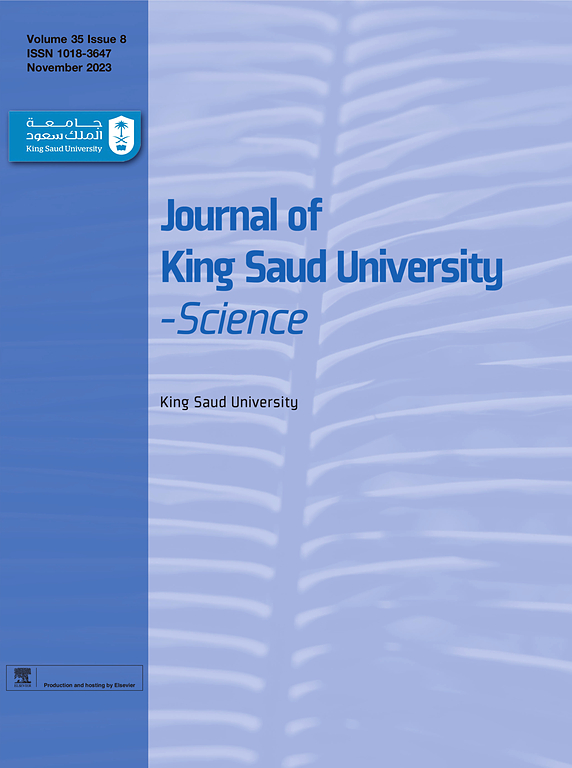
Systematic Review
Almond consumption was found to significantly reduce systolic blood pressure.
Li Z, Bhagavathula AS, Batavia M, Clark C, Abdulazeem HM, Rahmani J, Yin F
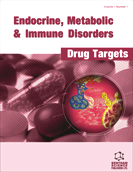
Systematic Review
Cinnamon supplementation has favorable effects on diastolic blood pressure and long-term effects on systolic blood pressure.
Hadi A, Campbell MS, Hassani B, Pourmasoumi M, Salehi-Sahlabadi A, Hosseini SA.
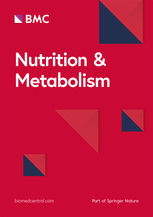
Systematic Review
L-citrulline supplementation significantly decreased non-resting brachial and aortic systolic blood pressure.
Yang HH, Li XL, Zhang WG, Figueroa A, Chen LH, Qin LQ

Systematic Review
Cinnamon supplementation leads to a significant reduction in both systolic and diastolic blood pressure in adults.
Seyed Mohammad Mousavi, Ahmad Jayedi, Yahya Jalilpiran, Maryam Hajishafiee, Azadeh Aminianfar, Ahmad Esmaillzadeh.

Systematic Review
Of the 7 clinical trials included, five evaluating individuals with hypertension observed a significant reduction in systolic and/or diastolic blood pressure. The two articles that evaluated individuals with dyslipidemia showed improvement in lipid profile.
Carolina Alves Cardoso, Gláucia Maria Moraes de Oliveira, Luciana de Almeida Vittori Gouveia, Annie Seixas Bello Moreira & Glorimar Rosa

Randomised Controlled Trial
Pomegranate juice intake can reduce systolic and diastolic blood pressure and inflammation markers, but may increase triglyceride and very low-density lipoprotein cholesterol levels.
Moazzen H, Alizadeh M
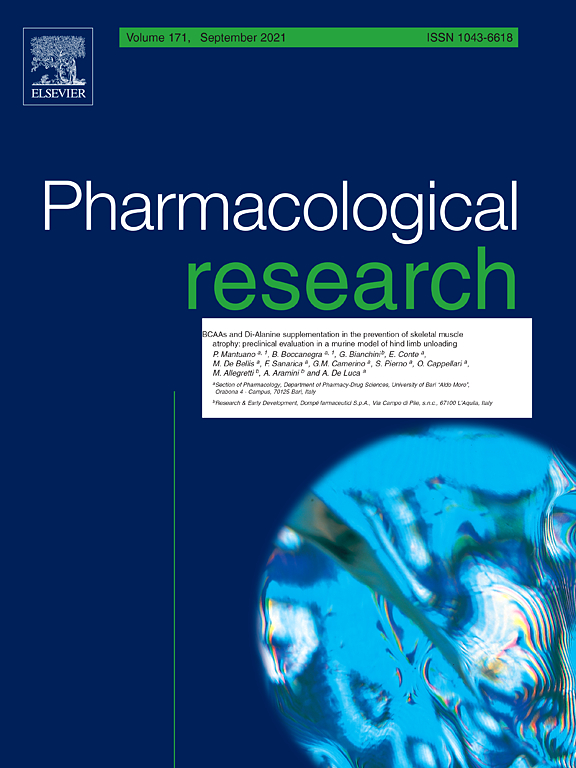
Meta-Analysis
Consuming pomegranate juice consistently can lead to significant reductions in both systolic and diastolic blood pressure, suggesting its potential cardioprotective benefits.
Sahebkar A, Ferri C, Giorgini P, Bo S, Nachtigal P, Grassi D

Systematic Review
There is evidence of efficacy of acupuncture as an adjunctive therapy to western medicine for treating hypertension.
Zhao XF, Hu HT, Li JS, Shang HC, Zheng HZ, Niu JF, et al

Clinical Study
Pomegranate juice intake for two weeks significantly reduces blood pressure and may improve heart health by lowering vascular endothelial adhesion molecule-1 levels.
Asgary S, Sahebkar A, Afshani MR, Keshvari M, Haghjooyjavanmard S, Rafieian‐Kopaei M
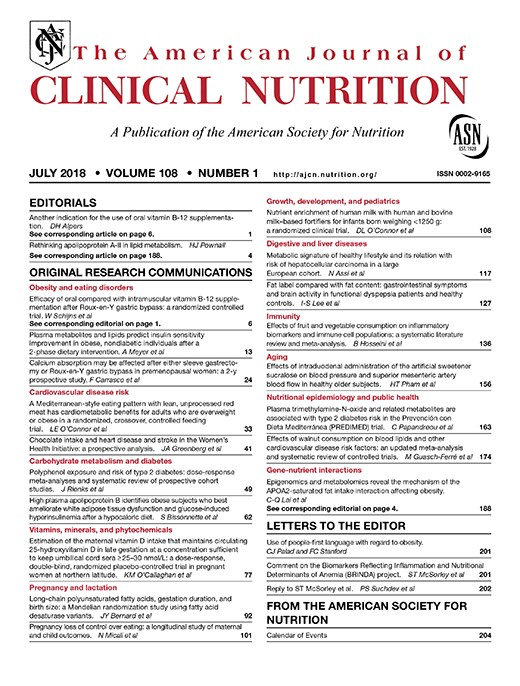
Systematic Review
Regular chocolate or cocoa consumption, rich in flavan-3-ols, has been associated with improved insulin resistance and blood vessel function, suggesting potential cardiovascular benefits.
Hooper L, Kay C, Abdelhamid A, Kroon PA, Cohn JS, Rimm EB, Cassidy A

Randomised Controlled Trial
Pumpkin seed oil supplementation may increase good cholesterol levels, lower diastolic blood pressure, and alleviate menopausal symptoms in postmenopausal women.
Gossell-Williams M, Hyde C, Hunter T, Simms-Stewart D, Fletcher H, McGrowder D, Walters CA
Executive Summary
Write an executive summary in the form of a blog article on the topic of "Research into Chinese medicine treatment for Diastolic Blood Pressure" summarising the research below and using language that can be easily understood by patients and avoiding medical jargon using a professional and caring tone of voice.
Write an executive summary in the form of a blog article on the topic of "Researched Chinese medicine treatments for Diastolic Blood Pressure" summarising the research below in an objective and easy to understand way, and using language that can be easily understood by patients. Group the article into Chinese medicine treatments first, followed by nutrition and other treatments. Avoid using medical jargon and use a professional and caring tone of voice.
Write me a concise but easy to understand executive summary on the topic of "Chinese medicine treatments for Diastolic Blood Pressure" based on the following research that I will give you. Your summary should be 2 paragraphs long in Australian English spelling and include references to the studies.
A Randomised Controlled Trial published in 2022 in the journal Antioxidants found that Pomegranate extract consumption improves antioxidant levels, reduces oxidative stress and cardiovascular risk factors including blood pressure and body fat, and increases lean body mass. In the study, 24 healthy participants were divided into two groups: one consumed a natural standardized pomegranate extract, while the other, a placebo, in a randomized, single-blind placebo-controlled trial. Evaluations were conducted at baseline and post 14 and 28 days of the experiment, with variables including anthropometric measurements, blood pressure, pulse wave speed, body composition, as well as the levels of salivary and urinary cortisol, cortisone, total phenolics, antioxidant capacity, and lipid peroxidation. The results indicated significant increases in urinary total phenolics excretion and antioxidant capacity after 14 and 28 days of pomegranate extract intake. By day 28, notable decreases were noted in systolic and diastolic blood pressure, pulse wave velocity, body fat and fat mass, and an increase in lean body mass. In terms of glucocorticoid levels, there was a marked decrease in saliva cortisol at day 28 in the morning for the pomegranate extract group, along with a decrease in the cortisol/cortisone ratio following 28 days of pomegranate extract intake at morning, noon, and evening. Reductions were also seen in urine free cortisol levels by day 14. These observations were unique to the pomegranate extract group, with no significant changes noted in the placebo group.
A Meta-Analysis published in 2022 in the journal Jundishapur Journal of Natural Pharmaceutical Products found that Consumption of broccoli sprouts significantly lowers blood pressure, potentially due to properties of sulforaphane. The research pulled from ten clinical trials studying human subjects' cardiometabolic health in relation to broccoli sprout supplementation. The literature used for this systematic review and meta-analysis was compiled from research found on Pubmed and Scopus up until June 2022, the range of studies spanned from 2004 to 2019. To create a valid comparison, seven of the clinical trials contained control groups. Discussing the results, it was found that the intake of broccoli sprouts brought significant reductions in both systolic and diastolic blood pressures. In addition, minor changes in blood lipid biomarkers were also tracked when compared to their baseline levels. These results confirmed the vegetable's hypotensive properties and brought attention to the potential sulforaphane-dependent effects it holds, thus underlining broccoli sprouts' value in managing cardiometabolic diseases.
A Randomised Controlled Trial published in 2021 in the journal Phytotherapy Research found that Pomegranate extract supplement shows potential in improving glycemic indicators, serum lipids, anthropometrics, and blood pressure in patients with nonalcoholic fatty liver disease. The study involved 44 patients who had been diagnosed with nonalcoholic fatty liver disease. These individuals were randomly assigned to two groups, with one group receiving two pomegranate extract tablets daily over a period of 12 weeks, and the other a placebo. The researchers measured anthropometric values, serum lipid levels, blood pressure, and glycemic indicators before and after the intervention. In their analysis of the outcomes, the researchers found that the group which received the pomegranate extract showed reductions in total cholesterol, triglyceride levels, the ratio of low-density lipoprotein cholesterol to high-density lipoprotein cholesterol, fasting blood sugar, resistance to insulin, diastolic blood pressure, weight, body mass index, and waist circumference when compared to the placebo group. Additionally, an increase in serum high-density lipoprotein cholesterol was observed within the pomegranate group, indicating the potential utility of this supplement in a treatment regimen for this condition.
A Systematic Review published in 2021 in the journal medRxiv found that The available evidence provides a good indication that nut consumption can result in a small improvement in blood pressure in adults. A total of 31 RCTs with 2784 participants were included. Each 20 g/d increase in nut consumption reduced systolic blood pressure and diastolic blood pressure. The effect of nuts on systolic blood pressure was more evident in patients with type 2 diabetes. The results were robust in the subgroup of trials with low risk of bias. Levels of systolic blood pressure decreased proportionally with the increase in nuts consumption up to 40 g/d, and then appeared to plateau with a slight upward curve. A linear dose-dependent reduction was seen for diastolic blood pressure, with the greatest reduction at 80 g/d. The available evidence provides a good indication that nut consumption can result in a small improvement in blood pressure in adults. Well-designed trials are needed to confirm the findings in long term follow-up.
A Systematic Review published in 2020 in the journal Complementary Therapies in Medicine found that Almond intake significantly decreased diastolic blood pressure, and inconsistently, almonds decreased systolic blood pressure. The evidence from this meta-analysis suggest that almonds may have beneficial effects on the BP. Based on the current scientific knowledge, it could be encouraged to include them, as part of a healthy diet in order to reduce the risk of hypertension.66 It should be noted that results cannot be generalized to those with other health problems, such as liver disease and cancer that were not included in this analysis. We found that almonds might have a considerable favorite effect in BP and especially in DBP, and it could be encouraged as part of a healthy diet; however due to the high calorie content, the intake should be part of healthy diet.
A Systematic Review published in 2020 in the journal Journal of King Saud University - Science found that Almond consumption was found to significantly reduce systolic blood pressure. A systematic and dose-response meta-analysis review study was carried out. The researchers thoroughly searched through PubMed/MEDLINE, Web of Science, and Scopus, with no restrictions on time or language, up until July 2019. The goal was to identify randomized controlled trials which investigated the effects of almond consumption on systolic and diastolic blood pressure. A total of fifteen studies, with 21 arms and involving 853 participants, were selected and their findings analyzed according to the PRISMA guidelines. Upon analysis, it was observed that the consumption of almonds displayed a significant reduction effect on systolic blood pressure. However, no such significant effect was found on diastolic blood pressure. The variation in results for diastolic blood pressure was noticed to be linked to the dose of almonds consumed, a finding made through a meta-regression analysis carried out during the study.
A Systematic Review published in 2020 in the journal Endocrine, Metabolic & Immune Disorders - Drug Targets found that Cinnamon supplementation has favorable effects on diastolic blood pressure and long-term effects on systolic blood pressure. Out of 927 records, 8 trials that enrolled 582 participants were included. The pooled effect size showed that systolic blood pressure did not change following cinnamon supplementation. Also cinnamon supplementation in long-duration (≥ 8weeks) had a significant effect on systolic blood pressure. Pooled analysis showed that cinnamon had a significant effect on diastolic blood pressure. In addition, results from both duration subsets and high dose (>1500 mg/day) of cinnamon supplementation were significant.
A Systematic Review published in 2019 in the journal Nutrition & Metabolism found that L-citrulline supplementation significantly decreased non-resting brachial and aortic systolic blood pressure. L-citrulline supplementation significantly decreased non-resting brachial and aortic systolic blood pressure. Brachial diastolic blood pressure was significantly lowered by L-citrulline regardless of resting status. Given the relatively small number of available trials in the stratified analyses and the potential limitations of these trials, the present findings should be interpreted cautiously and need to be confirmed in future well-designed trials with a larger sample size.
A Systematic Review published in 2019 in the journal Critical Reviews in Food Science and Nutrition found that Cinnamon supplementation leads to a significant reduction in both systolic and diastolic blood pressure in adults. This systematic review and meta-analysis included studies up to July 2019, sourced from databases like PubMed/Medline, Scopus, ISI Web of Science, Embase, and Google Scholar. The research focused on randomized clinical trials that primarily explored the effect of oral cinnamon supplementation on blood pressure parameters, including systolic or diastolic blood pressure. From the 469 citations, nine trials involving 641 subjects were included. The results inferred that cinnamon supplementation leads to a noticeable decrease in both systolic and diastolic blood pressure. A more remarkable effect on systolic blood pressure was observed in trials using less or equal to 2g cinnamon, lasting for 12 weeks or more, and included participants under the age of 50. Diastolic blood pressure was also reduced using lower doses of cinnamon. No significant non-linear associations were detected between cinnamon supplementation dosage, study duration, and both systolic and diastolic blood pressure.
A Systematic Review published in 2017 in the journal Critical Reviews in Food Science and Nutrition found that Of the 7 clinical trials included, five evaluating individuals with hypertension observed a significant reduction in systolic and/or diastolic blood pressure. The two articles that evaluated individuals with dyslipidemia showed improvement in lipid profile. The mechanisms of action are still being studied. Regarding the bias risk analysis, clinical trials included showed few descriptions of the methods applied. There are few studies about sesame ingestion, and it was observed high risk for bias in the selected studies. More standardized methods with attention to the design of studies are needed to improve the level of the evidence.
A Randomised Controlled Trial published in 2017 in the journal Plant Foods for Human Nutrition found that Pomegranate juice intake can reduce systolic and diastolic blood pressure and inflammation markers, but may increase triglyceride and very low-density lipoprotein cholesterol levels. In this double-blind crossover study involving 30 patients with metabolic syndrome, the subjects were given a daily dose of 500 ml pomegranate juice for a week. After a week-long "wash out" period, the participants were then given a placebo for another week. A range of metrics, including lipid profile, fasting blood glucose, fasting insulin, systolic and diastolic blood pressure, and high-sensitivity C-reactive protein (a marker of inflammation) were measured at the beginning and end of the study. After conducting a repeated measure analysis of variance and a t-test, the researchers found that compared to the placebo, pomegranate juice significantly reduced systolic and diastolic blood pressure as well as inflammation markers. However, it also led to an increase in triglyceride and very low-density lipoprotein cholesterol levels. Other metrics such as the rest of the lipid profile, fasting blood glucose, insulin, and a measure of insulin resistance, showed no notable changes.
A Meta-Analysis published in 2017 in the journal Pharmacological Research found that Consuming pomegranate juice consistently can lead to significant reductions in both systolic and diastolic blood pressure, suggesting its potential cardioprotective benefits. A systematic review and meta-analysis were conducted to investigate the correlation between pomegranate juice consumption and its effects on blood pressure. A comprehensive search was performed in Medline and Scopus databases to identify relevant randomized placebo-controlled trials (RCTs). The collected data from eligible studies were subsequently analyzed using a random-effects model. Additionally, quality assessment, sensitivity analysis, and evaluation of potential publication bias were carried out using standard methods. The findings showed that pomegranate juice was effective in significantly reducing both systolic and diastolic blood pressure, regardless of the duration of consumption and the dose consumed each day. These results remained stable even after sensitivity analyses. Furthermore, even doses greater than 240 cc recorded a nearly significant effect in reducing diastolic blood pressure. Thus, the study suggests the consistent effects of pomegranate juice consumption on lowering blood pressure.
A Systematic Review published in 2015 in the journal PLOS One found that There is evidence of efficacy of acupuncture as an adjunctive therapy to western medicine for treating hypertension. Our review provided evidence of acupuncture as an adjunctive therapy to medication for treating hypertension, while the evidence for acupuncture alone lowing BP is insufficient. The safety of acupuncture is uncertain due to the inadequate reporting of it. However, the current evidence might not be sufficiently robust against methodological flaws and significant heterogeneity of the included RCTs. Larger high-quality trials are required.
A Clinical Study published in 2013 in the journal Phytotherapy Research found that Pomegranate juice intake for two weeks significantly reduces blood pressure and may improve heart health by lowering vascular endothelial adhesion molecule-1 levels. In the experiment, twenty-one hypertensive participants, aged between 30 to 67 years, were gathered and randomly assigned to consume either 150ml of fresh pomegranate juice per day or an equal quantity of water for a period of two weeks. The pomegranate juice was consumed in a single occasion between lunch and dinner. The blood pressure of these subjects, including systolic and diastolic pressures, were measured before and after the trial period. Additionally, levels of specific elements including lipid profile parameters, apolipoproteins A and B, intracellular adhesion molecule-1, vascular endothelial adhesion molecule 1, E-selectin, and other inflammatory and endothelial function biomarkers such as high-sensitivity C-reactive protein and interleukin-6, were also measured. The results showed that the consumption of pomegranate juice was associated with notable reductions in both systolic and diastolic blood pressures. The intake of pomegranate juice also resulted in a significant decrease in levels of vascular endothelial adhesion molecule 1, even though there was an increase in E-selectin levels. No observable influence appeared on the levels of intracellular adhesion molecule-1, high-sensitivity C-reactive protein, lipid profile parameters, apolipoproteins, or interleukin-6 from the juice consumption, indicating that pomegranate juice may specifically target certain elements related to heart health.
A Systematic Review published in 2012 in the journal The American Journal of Clinical Nutrition found that Regular chocolate or cocoa consumption, rich in flavan-3-ols, has been associated with improved insulin resistance and blood vessel function, suggesting potential cardiovascular benefits. The study systematically reviewed 42 randomized controlled trials involving 1297 participants to investigate the impact of chocolate, cocoa, and flavan-3-ols on major cardiovascular disease risk factors. Utilizing a comprehensive search across multiple databases, the researchers conducted meta-analyses, assessing acute and short-term chronic interventions. Results revealed consistent improvements, including reduced insulin resistance (HOMA-IR), enhanced flow-mediated dilatation (FMD), and favorable effects on blood pressure and cholesterol levels. The findings indicate promising cardiovascular benefits associated with chocolate or cocoa consumption. Notably, the study highlights improvements in insulin sensitivity, blood vessel function, and blood pressure, emphasizing the potential positive impact of flavan-3-ols found in these products.
A Randomised Controlled Trial published in 2011 in the journal Climacteric found that Pumpkin seed oil supplementation may increase good cholesterol levels, lower diastolic blood pressure, and alleviate menopausal symptoms in postmenopausal women. In this pilot study employing a randomized, double-blinded and placebo-controlled design, 35 women that were either naturally menopausal or had prematurely entered menopause due to benign surgical intervention partook. Over the span of 12 weeks, participants received either pumpkin seed oil or wheat germ oil (serving as the placebo) at a dosage of 2 grams daily. Measurements of serum lipids, fasting plasma glucose, blood pressure and completion of a questionnaire regarding menopausal symptoms were taken before and after the supplementation period, and changes across these factors were evaluated. Following supplementation, women who received pumpkin seed oil displayed increased concentrations of high density lipoprotein cholesterol (commonly known as good cholesterol) and a reduction in diastolic blood pressure. Additionally, there was a notable decline in the severity of menopausal symptoms, including hot flushes, headaches, and joint pain, thanks to this supplementation. Contrarily, symptoms of depression and feelings of being unloved heightened among women in the group that received wheat germ oil.
Moderation Tools
Topic
Sign In
Users not signed in are limited to viewing the 5 most recent items of content.